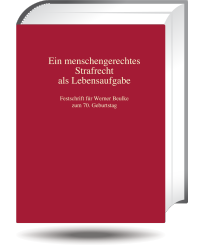The ECJ on choice-of-court agreements relating to contracts concluded electronically
Under the Brussels I Regulation on jurisdiction and the recognition and enforcement of judgments in civil and commercial matters (and, today, under the recast Brussels Ia Regulation), choice-of-court agreements must comply with certain formal requirements. These are set out in Article 23(1) of the Brussels I Regulation (corresponding to Article 25(1) of the recast). The agreement may either be “in writing” or “evidenced in writing”, or be “in a form which accords with practices which the parties have established between themselves” or, in international trade, in a form which accords with a usage of which the parties are or ought to have been aware.
Article 23(2) of the Brussels I Regulation (Article 25(2) of the recast) adds that “[a]ny communication by electronic means which provides a durable record of the agreement shall be equivalent to ‘writing’”.
In a judgment of 21 May 2015 (Case C-322/14, Jaouad El Majdoub v CarsOnTheWeb) the ECJ clarified the meaning of the latter provision.
The Court had been seised of a request for a preliminary ruling in the framework of a dispute regarding a contract for the sale of a car concluded by “click-wrapping” between parties none of which was a consumer.
In electronic contracts, click-wrapping occurs where the webpage containing the general terms and conditions of the seller does not open automatically upon registration or in the process leading to the individual transaction. Rather, to view such general terms and conditions, the purchaser must click on a box bearing an indication such as to “click here to open the general conditions of sale in a new window” .
In the case at hand, the general conditions of the seller included a forum-selection clause providing for the jurisdiction of a court in Leuven. The purchaser, however, contended that the click-wrapping method of accepting such general terms did not fulfil the requirements laid down in Article 23(2) of the Brussels I Regulation. Consequently, the jurisdiction clause cannot, in his view, be invoked against him.
In its judgment, the ECJ held that the method of accepting the general terms and conditions of a contract by “click-wrapping” constitutes a communication by electronic means which provides a durable record of the agreement, within the meaning of Article 23(2) of the Brussels I Regulation, “where that method makes it possible to print and save the text of those terms and conditions before the conclusion of the contract”.
The reasoning of the Court may be summarised as follows.
The formal requirements in Article 23 of the Brussels I Regulation “must be strictly interpreted”, since a valid agreement excludes both the general jurisdiction of the courts of the State in which the defendant is domiciled and the special jurisdiction provided for in Articles 5 to 7 of that Regulation (Articles 7 to 9 of the recast).
The scope of Article 23 is limited to cases in which the parties have “agreed” on a court. It is that consensus between the parties which justifies the primacy granted, in the name of the principle of autonomy, to the choice of a court other than that which may have had jurisdiction under the Regulation.
Thus, as the Court itself already observed with reference to the predecessor of the Brussels I Regulation, i.e. the Brussels Convention of 27 September 1968, the rule in question, by making the validity of a jurisdiction clause subject to the existence of an “agreement” between the parties, “imposes on the court before which the matter is brought the duty of examining … whether the clause conferring jurisdiction upon it was in fact the subject of consensus between the parties, which must be clearly and precisely demonstrated”.
Under Article 23(2) of the Brussels I Regulation, the validity of a forum-selection agreement involving communication by electronic means depends, inter alia, on the possibility of providing a durable record of the agreement of the parties.
Literally, this provision requires there to be the “possibility” of providing such a durable record, “regardless of whether the text of the general terms and conditions has actually been durably recorded by the purchaser before or after he clicks the box indicating that he accepts those conditions”.
Furthermore, the Explanatory Report of the Lugano Convention of 30 October 2007, by Professor Fausto Pocar, suggests that the test of whether the formal requirement in that provision is met is “whether it is possible to create a durable record of an electronic communication by printing it out or saving it to a backup tape or disk or storing it in some other way”, and that that is the case “even if no such durable record has actually been made”, meaning that “the record is not required as a condition of the formal validity or existence of the clause”.
As a matter of fact, the purpose of Article 23(2) is “to treat certain forms of electronic communications in the same way as written communications in order to simplify the conclusion of contracts by electronic means, since the information concerned is also communicated if it is accessible on screen”. For electronic communication to offer the same guarantees, in particular as regards evidence, “it is sufficient that it is ‘possible’ to save and print the information before the conclusion of the contract”.
The Court noted that, in Content Services, a judgment of 2012, it held that “a business practice consisting of making information accessible only via a hyperlink on a website does not meet the requirements” set out by Article 5(1) of Directive 97/7/EC on the protection of consumers in respect of distance contracts, pursuant to which the consumer must receive “written confirmation” of certain information to be provided prior to the conclusion of the contract, or “confirmation in another durable medium available and accessible to him”.
However, the Court explained, that interpretation cannot be applied to Article 23(2) of the Brussels I Regulation, “since both the wording of Article 5(1) of Directive 97/7 … and the objective of that provision, which is specifically consumer protection, differ from those of Article 23(2)”.




